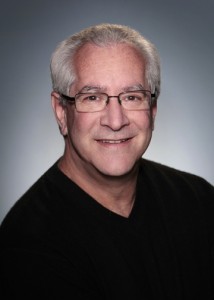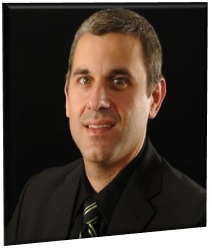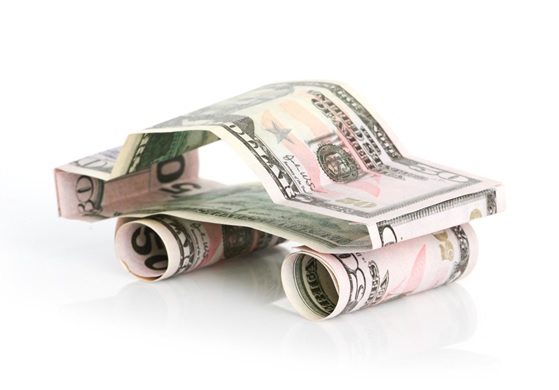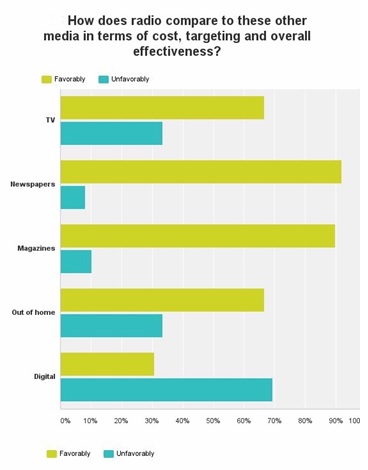 After two DASH Conferences, we’ve gained a greater understanding of what car manufacturers and their suppliers are envisioning for the “connected car” of the future. But we’re also learning more about how the auto companies are realigning their ad spend priorities. Digital is the big story here, and in today’s guest post, Paul Jacobs combines his vast experience in radio sales with his knowledge of what’s really going on in the corner offices of the car companies.
After two DASH Conferences, we’ve gained a greater understanding of what car manufacturers and their suppliers are envisioning for the “connected car” of the future. But we’re also learning more about how the auto companies are realigning their ad spend priorities. Digital is the big story here, and in today’s guest post, Paul Jacobs combines his vast experience in radio sales with his knowledge of what’s really going on in the corner offices of the car companies.
Thanks to Paul, DASH will be about more than just the architecture of the dashboard. It will offer actionable information from the OEMs’ decision-makers about where dollars are being deployed, and how radio can influence the process.
Given that automotive remains the #1 advertising category, DASH should be on the radar screens of stations across the U.S., in markets big and small. Here’s Paul’s take on today’s environment, and how DASH is designed to help radio understand and impact these critical advertising and marketing decisions. – FJ
A few years ago, a friend of mine who was the head of media for a major advertising agency in a top five market called me and asked a simple question: “What’s wrong with radio?” He had just completed overseeing several media buys that allocated some budget for radio, and he didn’t understand why so many radio stations were coming in so far under the cost-per-point. As he said to me, “I don’t know who looks worse here – my media planners or the radio stations.”
All media are being squeezed on rate, but radio continues to stand apart by the way it’s been able to hold on to such a large percentage of listeners, despite increasing competition and fragmentation. However, a recent article in Media Life included a graphic from a survey they conducted that should compel everyone in sales to take notice. In a poll of mostly media buyers and advertisers, radio’s advantage in cost, targeting, and overall effectiveness dwarfs other media, with the exception of digital (which wins on the strength of its targeting capabilities).
Looked at another way, radio is still selling itself too cheap.
I’ve spent the past few decades working with radio sales staffs, helping them craft pitches to advertisers. If there’s one constant (regardless of format), it’s that advertisers simply don’t perceive radio as a high-value play. They utilize the ratings to compare stations unfairly – why do stations that have live, local, and outstanding talent have to be graded on the same scale as those that are voice-tracked, when so many advertisers squawk about the lack of live, local, outstanding talent?
Maybe we’ve been selling radio all wrong. Or maybe we need to start marketing radio differently.
That’s how we’re approaching our DASH Conference this year. The automotive space is the lifeblood of radio – as both a listening location and sales source. And it’s very much up for grabs right now.
In fact, I’ll say it:
If you’re invested in revenue generation at your station or your company, you need to attend DASH.
Here’s why: A primary area of focus this year is on retaining (and hopefully growing) advertising revenue from local car dealers. Our approach will have nothing to do with ratings, formats, remotes, or other usual tactics. Instead, we are going to explore two specific areas:
- How radio stations can become partners with dealers to sell more cars and create satisfied customers.
- How radio can better identify and capitalize on dealer budgets that are shifting to digital.
Car dealerships have been a focus for us since the first DASH Conference in 2013. And in a series of interviews these past couple of years, most of the managers and owners of these local car stores tell us they place a high degree of importance on ROI – knowing the actual impact of their advertising investment. They love traffic-building and the Labor Day three-day sale, but they are under increasing pressure to quantify the results of their ad spending in the areas of clicks on specific websites, appointment setting, and website interaction. It is a high priority to specifically know which ads are reaching, and who is responding to them.
In this new paradigm, counting the number of listeners that show up at a remote doesn’t qualify as ROI. This line of thinking starts at the top – in this case, with the major automakers themselves.
David DiMeo (below) is the Director of Connected Car Innovations at Ford Direct. This is the division that allocates co-op dollars to Ford dealers in your markets, as well as determining where the money should be spent. This joint venture between dealers and Ford is tasked with selling more cars at the dealer level.
Currently, Ford Direct dictates that a sizable share of their co-op ad dollars must be spent on digital platforms. That means that when your sellers go into a Ford dealership to pitch a radio buy, they are already under the gun.
And DiMeo isn’t shy about explaining why Ford is taking this approach. As he told me, “I don’t want to pay for ears. I want to pay for actions.”
At DASH, Dave will explain the reasoning behind this strategy. And he’ll also tell us what radio stations need to do in order to capture a larger share of that pot of dollars no longer being allocated based on cost-per-point. These are the types of panels and experts you won’t see at other conferences, and that’s why DASH is an essential get-together for radio professionals.
The radio industry simply cannot continue to operate as it has in the past, especially on the sales side. Hiring salespeople who are expert negotiators or skilled networkers isn’t as important as having a team of people that understand all of the various ways that stations can fulfill their client’s needs in new, innovative, and effective ways.
Ideas – and results – are the only currency that matter in 2015 and beyond. That’s at the core of the DASH Conference this year, and it should be the new operating mantra inside all sales departments.
If you’re in sales, sales management, ownership, in the corporate office, or you’re responsible for revenue generation in the automotive sector, DASH is the place to be. It’s the only conference where you’ll hear from key players like DiMeo who’s there to help broadcasters shape and develop effective sales and marketing strategies.
For more information about DASH and to register, go to www.dashconference.com.
- The Revolution Will Not Be Monetized - December 30, 2024
- What Kind Of Team Do You Want To Be? - October 4, 2024
- The Revolution Will Not Be Monetized - August 20, 2024






This idea of the “connected car” worries me. How much more “stuff” will the driver be able to do while he or she is driving that car? Quite frankly the only thing I want that driver to do is keep both eyes on the road and both hands on the wheel. We don’t need more “things” to distract them. We already have to watch out for drunk drivers and people who text while driving. Do we really have to add to this list of dangerous distractions?
Thanks for the thoughts, Chris. The OEM’s share your concern, and actually, these systems are getting simpler and easier for the consumer to use. While it’s unknown whether more content and options will be coming into the car any time soon, the fact is, this is destabilizing the radio business – listening and revenue. That’s why we do the DASH Conference – it’s important for broadcasters to have a strong seat at the table to ensure that radio is properly represented in the DASH and as easy as possible for the listener to use. And for the revenue side, it’s equally important that broadcasters understand the changes in priorities at the OEM and dealer level.